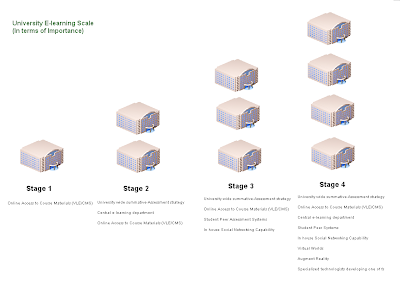Its been a long time since I have posted to a blog, mainly due to circumstances cloading my judgement and thoughts.
Now academics currently use a system called Wimba Create to create webpages etc and we are looking at other supportive tools to help with the process.
XERTE
Now xerte is something familiar to myself having worked with Authorware for years I have heard of the main developer of Xerte. It to me seems to have taken some ideas from authorware and transferred them to flash. What is bothering me is that we seem to be taking a big step back in time to enclosed learning objects. This does not take into account the functionaility and flexibility of the web (hyperlinking etc). I myself find it difficult to navigate a Xerte project and find the menu structure unworkable sometimes. I dont disagree it is a useful tool to create enclosed learning objects, I am questioning though whether taking that step back in time is worthwhile for the student. Especially losing functionaility like tag clouds etc regarding importance and a whole lot of other web related features.
The problem we had with Wimba Create was the opposite of Xerte and that is that it is very difficult for academics to create quizes/flash interactions. So personally I think neither is the solution and we will have to wait for an ideal system.
So the question is do we take that step back in time to go forward.



